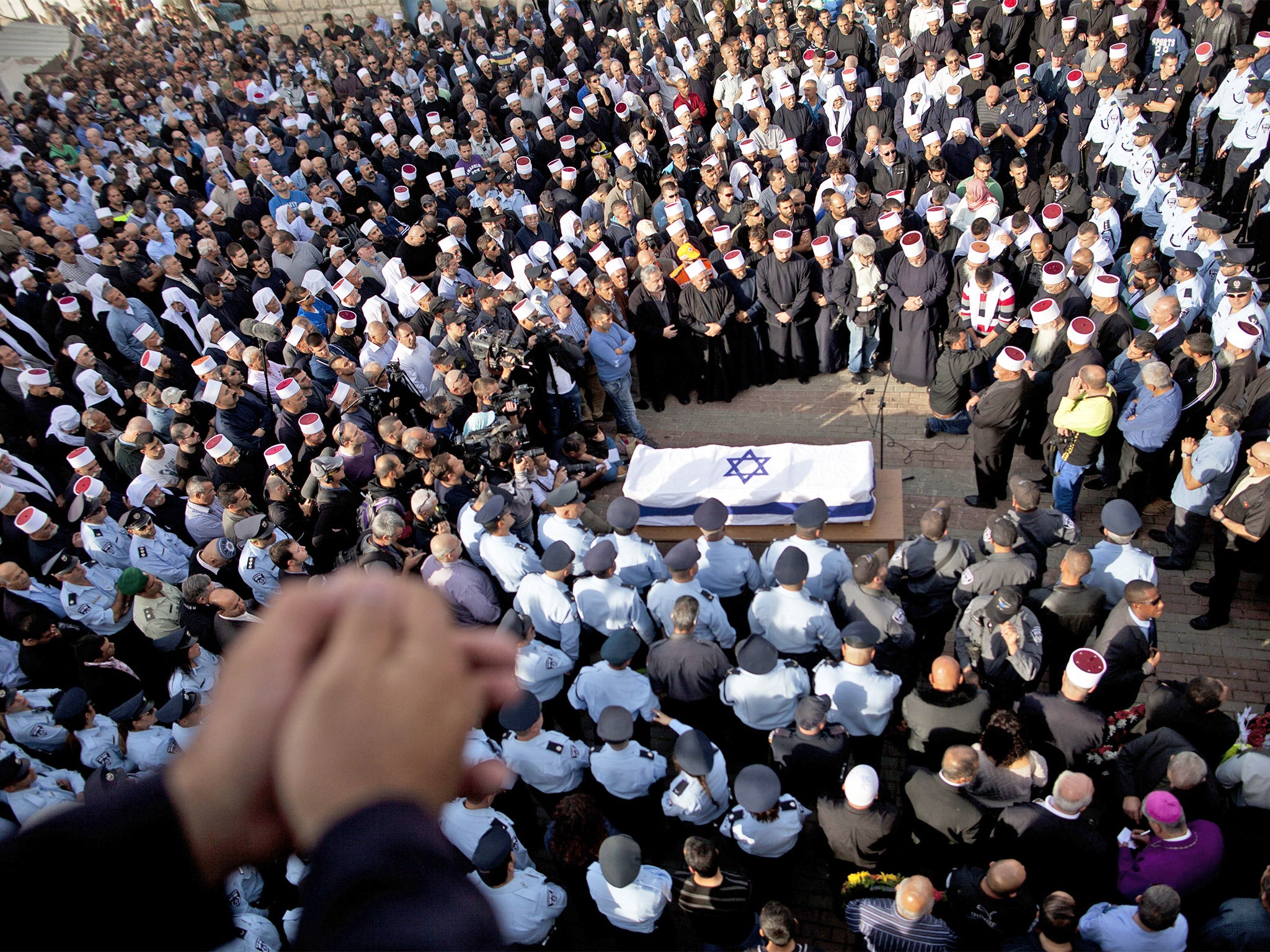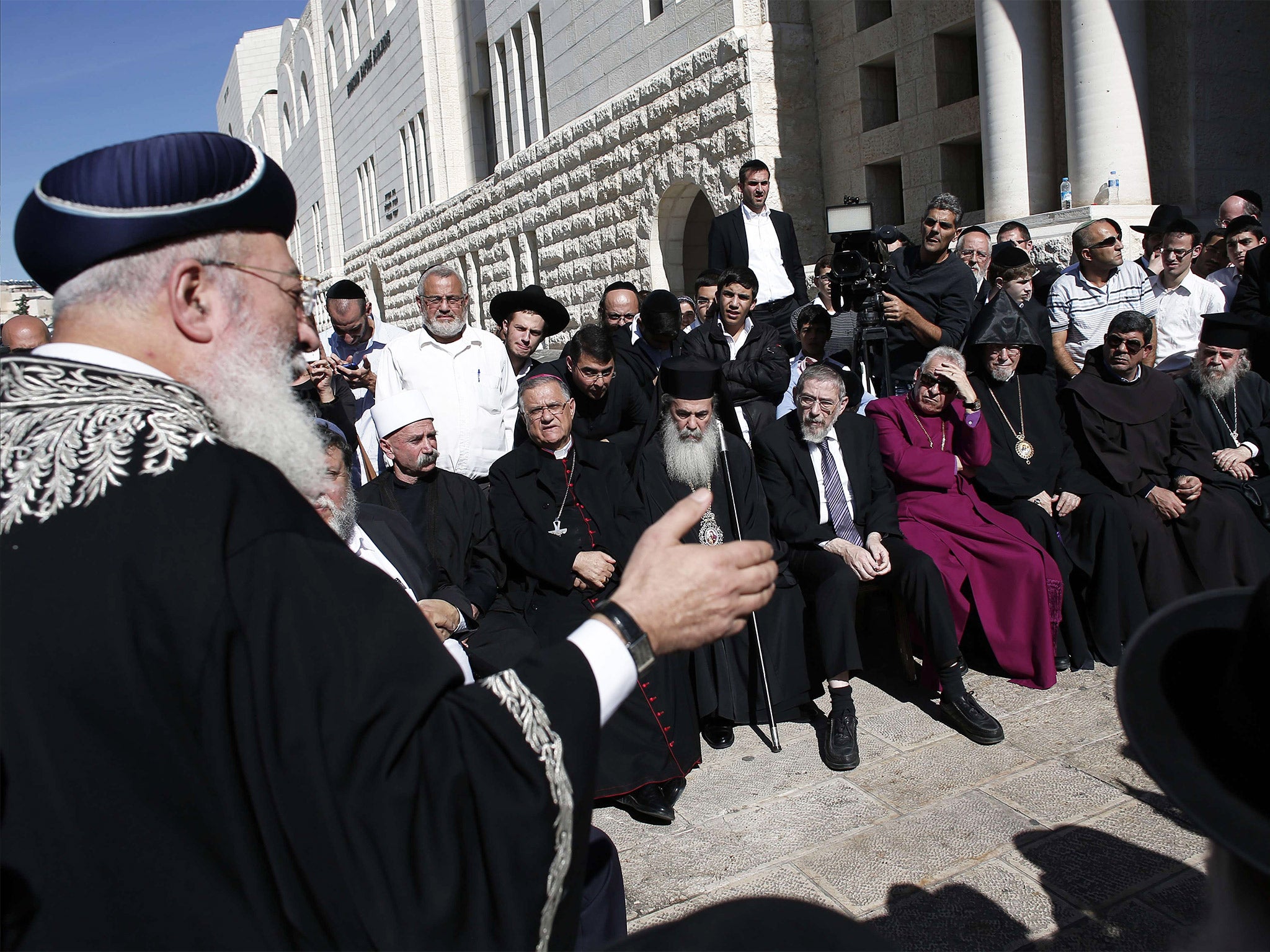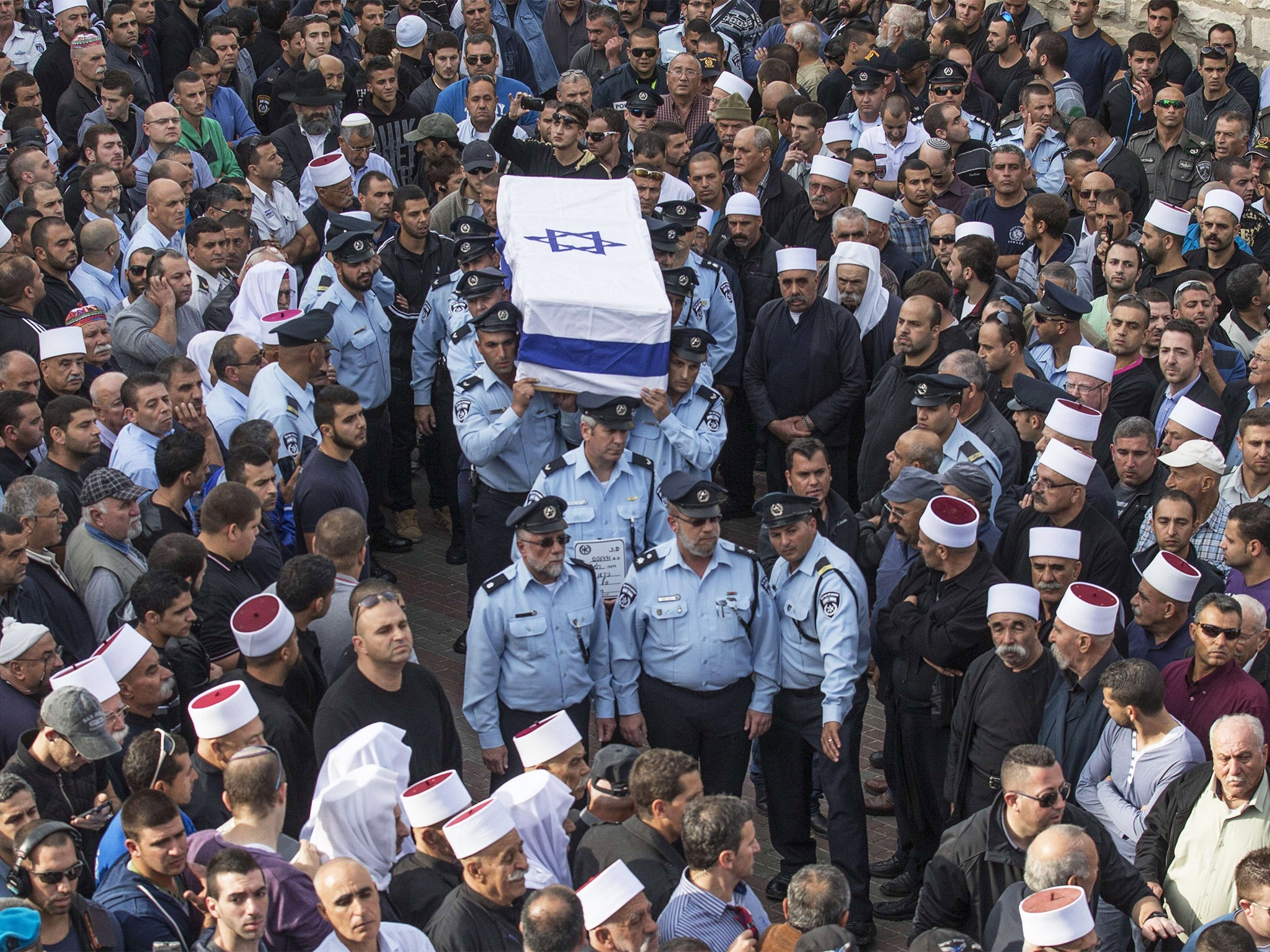Synagogue attack: Fear unites both sides of Jerusalem as minister warns restoring quiet 'could take months'
Rising violence, increased police patrols and right-wing politicians visiting Islam’s third holiest site all add up to ‘a madness world’ that has left residents of all faiths looking over their shoulders

Your support helps us to tell the story
From reproductive rights to climate change to Big Tech, The Independent is on the ground when the story is developing. Whether it's investigating the financials of Elon Musk's pro-Trump PAC or producing our latest documentary, 'The A Word', which shines a light on the American women fighting for reproductive rights, we know how important it is to parse out the facts from the messaging.
At such a critical moment in US history, we need reporters on the ground. Your donation allows us to keep sending journalists to speak to both sides of the story.
The Independent is trusted by Americans across the entire political spectrum. And unlike many other quality news outlets, we choose not to lock Americans out of our reporting and analysis with paywalls. We believe quality journalism should be available to everyone, paid for by those who can afford it.
Your support makes all the difference.A day after a Palestinian attack on a Jerusalem synagogue jolted the Jewish state, Israel’s Public Security Minister, Yitzhak Aharonovich, has conceded it could take "months" for police to quell attacks emanating from Arab neighbourhoods of this fractured and fear-gripped city.
Mr Aharonovich told the Israeli website Ynet that there was no “bang and it’s over” solution. Restoring quiet, he warned, could take months. To assuage the public feeling that something must be done immediately, security forces today implemented the first of a planned string of demolitions of the family homes of Palestinian assailants in the recent violence.
“The terrorist must know that we will forcibly respond to their actions,” finance minister Yair Lapid told Channel Two television after the family home of Abdul Rahman Shalodi, who killed two people by running them over last month, was destroyed in the restive Silwan neighbourhood.
Meanwhile, Arab and Jewish residents interviewed today differed sharply over the causes, import and morality of the synagogue attack, the worst violence in the city in six years. The civilians on both sides have in common deep fears about their safety and a bleak view of the future.
Asked about the synagogue attack, Simon Benit, an Israeli heating systems specialist, said: “My nightmare is happening now because I have two kids growing up in a madness world.” Mr Benit said he learned of the attack, which killed four worshippers and a policeman, from the radio while he was driving his seven-year-old to school. “My kid asked me what was going on. I told him that there was an accident. I didn’t tell him there were shots in a synagogue because he’ll never go to synagogue again.”
On the other side of Jerusalem, Hiba Barakat, a hotel management student, said: “We are afraid that Jews will kidnap or kill us or that police will arrest us. We’re afraid to go to our college.”
Ms Barakat is from Shuafat, the east Jerusalem neighbourhood that was home to Mohammed Abu Khdeir, a 16-year-old brutally killed by extremist Israelis in June. Her security fears intensified this week when an Arab bus driver was found hanged in his vehicle in Jewish West Jerusalem. Israeli police say an autopsy found that it was a suicide but Arabs are convinced this was a lynching. “Settlers choked him, but the police excused them,” said Shireen Hanan, a hotel management student.
Much of the violence has been triggered by a perception among Palestinians that Israel is threatening Islam’s third holiest site, the al-Aqsa mosque. Mr Aharonovich said “incitement” by Palestinian President Mahmoud Abbas and on social networks was to blame. “They are activating terror on the internet that encourages attacks,” he said.

While Benjamin Netanyahu, the Prime Minister, has said repeatedly that Israel is committed to maintaining the status quo in the mosque compound, revered by Jews as the Temple Mount, nobody interviewed in East Jerusalem believes him. The Palestinian media has highlighted provocative visits to the site by right-wing politicians who support instituting Jewish prayer at the compound.
Tzipi Hotoveli, a deputy minister from Mr Netanyahu’s Likud party, said that such visits will continue and called for the resignation of intelligence chief Yoram Cohen, who called for them to be stopped. Mr Aharonovic could not conceal his frustration at the police’s inability to stop Palestinian attacks. “For all of the attackers until today we did not have any information about them. We wake up and get an attack. There is no infrastructure behind them. It is hard to locate a person who just decides in the morning to carry out an attack.”
He said there had been “no information” about Uday and Ghassan Abu Jamal, the two cousins who carried out the synagogue attack. One of them worked close to the synagogue and the two just decided to attack it, he said. Mr Aharonovich concluded his remarks by saying Jerusalem was at war and, in the end, “we will destroy”.
In West Jerusalem’s Beit Hakerem neighbourhood, special education student Naama Galendauer said that while walking the street, she turns and “looks to see what might happen”.
She said: “When I do a sports activity, I wonder if a car is going to run me over. There is a real fear in having your life dependent on an Arab who can suddenly decide to kill you.”

Simone Karsente, a retired teacher, added: “I have fear in my stomach.” She likened those who carried out the synagogue attack to “jihadists who cut off heads”. She said: “They are animals, not humans.”
On Salah al-Din Street in East Jerusalem, Palestinians said Israeli actions had prompted the attack. “Why do they aggress against al-Aqsa mosque?” asked Lena Swahreh. She and others recalled the 1994 massacre of 29 Palestinians by a Jewish settler during mosque prayers in Hebron. Ms Swahreh, who also studies special education, said: “We are witnessing the third intifada [uprising] in defence of al-Aqsa.”
Mohammed al-Qaq, a resident of Silwan, said: “The biggest cause of these actions is the Israeli desecration of al-Aqsa.” Mr Qaq, who served two years in an Israeli jail, said police reinforcements and constant patrols in Silwan over the last month were only making the situation more tense. “I foresee an explosion from the pressures the Israeli government is putting on Arabs. The Israelis press, they make an explosion, and then they blame us,” he said.
Join our commenting forum
Join thought-provoking conversations, follow other Independent readers and see their replies
0Comments